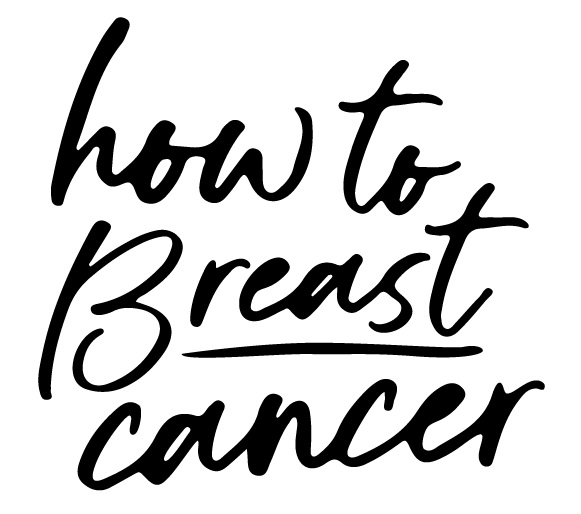Mind Matters
Article at a Glance
- You may not think you need to, but maybe you should talk to someone.
- If you decide to talk to someone, choose your psychologist as thoughtfully as you would a trusted friend.
- Be as diligent with your therapy as you are with your treatments.
- It’s Ok to not be Ok...it takes time to become truly Ok.
“There is a crack in everything, that’s how the light gets in.”
— Leonard Cohen
There have been many times throughout the past two plus years of being on this cancer journey where I cracked. I am not ashamed to admit this now, but in the past, I struggled to admit it even to myself. For you see, I was accustomed to being the person who solves others’ problems. The critical thinker and master planner that could see around the corners and proactively address the issues seamlessly, almost effortlessly.
The cancer diagnosis put all of that into question. Or minimally, into a new light.
For the first month following my diagnosis in 2019, I was in such shock that I now know it was the very energy of the shock that was sustaining me. And then as my treatments began, I fell into somewhat of an overdrive routine, trying to be Superwoman by day, only to crumble at the end of the night, when no one could see me. I look back at certain moments and I see myself weeping uncontrollably, feeling empty and lost, feeling like an outcast in my own life. That feeling is so encompassing it can be suffocating.
I was visibly functional, but invisibly dysfunctional.
And as the illness continued to rage against the treatments and I faced recurrence after recurrence and new treatment after new treatment, I could not only feel the cracks, but I could also see them. The cancer literally broke through to my skin and through a bone and I was constantly in such excruciating pain that it became increasingly difficult to see past the dark thoughts that often accompany pain and suffering.
It was then, after almost a full year of ongoing treatments that were failing me, that the light got in, and that light, was the step to diligently begin the “other treatment”, treating the mental side of cancer. And doing so with the same focus and tenacity as the cancer itself. Because it is all intertwined.
In this article, I want to share a bit about the importance of psychological therapy as part of your cancer treatment and why it is an incredibly important tool in your healing journey. My intention in having shared the depths of my own personal challenges at the start of this article is so that you could understand that for me, this topic is not theoretical, conceptual or something someone mentioned would be helpful to discuss. For me, it is real, because I am living it.
According to Wikipedia, psycho-oncology is an interdisciplinary field at the intersection of physical, psychological, social, and behavioral aspects of the cancer experience for both patients and caregivers. Also known as psychiatric oncology or psychosocial oncology, researchers and practitioners in the field are concerned with aspects of individuals' experience with cancer beyond medical treatment, and across the cancer trajectory, including at diagnosis, during treatment, transitioning to and throughout survivorship, and approaching the end-of-life. Founded by Dr. Jimmie Holland in 1977 via the incorporation of a psychiatric service within the Memorial Sloan Kettering Cancer Center in New York, the field has expanded drastically since and is now universally recognized as an integral component of quality cancer care. Cancer centers in major academic medical centers across the country now uniformly incorporate a psycho-oncology service into their clinical care and provide infrastructure to support research efforts to advance knowledge in the field.
So, what does all of this mean for you?
As always, a few thoughts for your consideration.
1 | You may not think you need to, but maybe you should talk to someone.
I read Lori Gottlieb’s book titled Maybe You Should Talk to Someone and found it to cleverly and in a down-to-earth way, demonstrate the value of therapy, especially through the lens of people who may not initially think there’s value or who tend to fight against the very aspect that is actually helping them heal. I had never before my cancer journey sought therapy, nor did I understand how someone who was for all accounts a stranger, could help me unlock the depths of my own feelings. And now, I cannot imagine my treatment and healing journey not including my psychologist.
2 | If you decide to talk to someone, choose your psychologist as thoughtfully as you would a trusted friend.
This is big. The connection you feel to your psychologist has to feel genuine, trusted, easy, deep, respectful, and compassionate. They of course, must demonstrate competency, but it has to go beyond just that for there to be a good and lasting relationship. For some people, it is not easy to let their guard down, but I believe that if you always have walls up to keep out the “bad”, the “good” can’t get in either. So, choose someone with whom you can feel that genuine trust and compassion and it will allow you to let the walls down and the feelings out.... because it’s about helping your healing.
3 | Be as diligent with your therapy as you are with your treatments.
The same way that you have to stay on track with your treatments and medications as part of your cancer treatments, so should you be with your therapy. I schedule my visits the week following my chemotherapy so that I can feel recovered from the treatment and use the therapy session to further my recovery and allow me to shed that which is not serving me and boost my energy for the two weeks in between treatments to feel my best. Therapy is a powerful healing agent. Use it.
4 | It’s Ok to not be Ok...it takes time to become truly Ok.
And that’s ok...we are all on a journey to become the best version of ourselves that we can be. It often starts with understanding that we don’t have to say we’re ok if we’re not. This takes time, especially for cancer patients. And so, one of the many benefits of therapy is being comfortable with not being truly okay but knowing that you are on the path to getting there and that you are moving towards that place (whatever it means for you, because it is highly individualized), at your own pace. This is also extraordinarily helpful in learning to better communicate how you’re feeling to your loved ones and how empathy for one another can better coexist.
Key Takeaways
And so, as always, I leave you with one key take away, if you remember nothing else from this article, know this: we all have cracks and it’s hard sometimes when we look within to not see just darkness, and for that reason, it helps to have someone else shine a light that guides us to where we can be okay. Let light in.
With love,
Amelia O.




